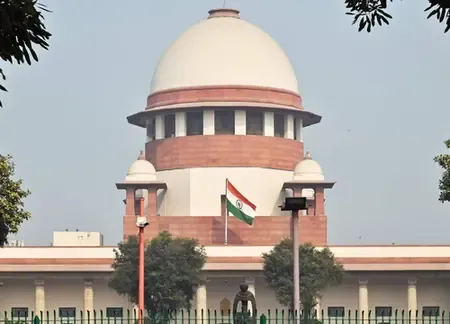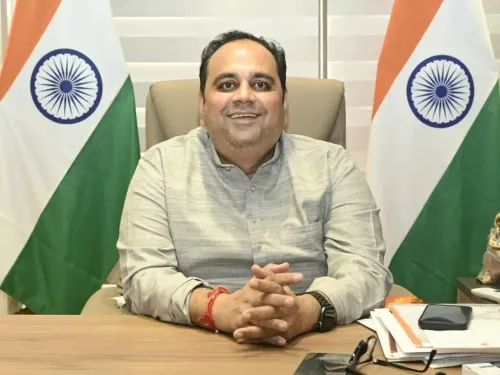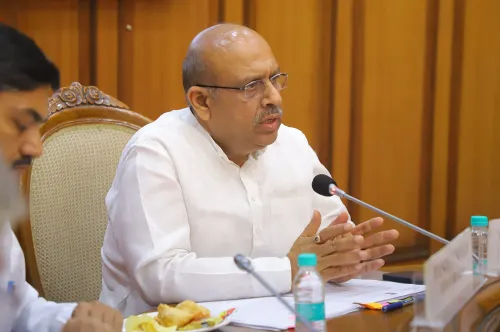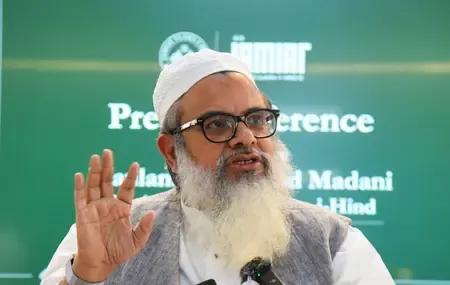Will the CJI Gavai-led Bench Hear Petitions Against the Waqf Amendment Act Tomorrow?

Synopsis
Key Takeaways
- Supreme Court to hear petitions on Waqf Act.
- Waqf Amendment Act aims for transparency.
- Concerns about property encroachment raised.
- Government assures against misuse of provisions.
- Need for accountable Waqf management highlighted.
New Delhi, May 14 (NationPress) The Supreme Court is set to deliberate tomorrow on a series of petitions contesting the constitutional legitimacy of the Waqf (Amendment) Act, 2025.
According to the schedule released on the apex court's official website, a two-judge bench led by Chief Justice of India (CJI) BR Gavai and Justice AG Masih will resume discussions on this matter on May 15.
Several petitions have been submitted to the highest court challenging the amendments made to the Waqf Act, 1995.
During the last session on May 5, a bench chaired by former CJI Sanjiv Khanna indicated that it would not be reserving its verdict at this interim stage due to his upcoming retirement.
The bench, which included Justices Sanjay Kumar and K.V. Viswanathan, remarked: 'We will set this matter before Justice Gavai's bench on May 13 or 14.
In a previous hearing, the Supreme Court provided a week’s timeframe for the Centre, state governments, and Waqf Boards to submit their initial responses. It decided to consider five writ petitions as lead cases, categorizing other requests as intervention applications. Additionally, the registry was instructed to rename the proceedings to 'In Re: The Waqf (Amendment) Act, 2025.'
Following the Supreme Court's indication of potentially issuing a stay order, the Union government reassured the court that it would refrain from de-notifying provisions related to 'Waqf by user' or allowing non-Muslim members in the Waqf Board. In its initial affidavit, the Centre stated that these amendments were introduced to prevent the misuse of Waqf legislation, which had led to the encroachment of government properties, ensuring that Waqf Boards operate with transparency.
'There have been reports of Waqf provisions being misused to encroach upon both private and government properties. It is alarming to note that post the amendment in 2013, there has been a 116 percent increase in Waqf areas,' stated the Union Ministry of Minority Affairs.
The Centre's response document highlighted that many Waqf Boards have been operating in a 'non-transparent manner,' often failing to disclose comprehensive information publicly. It pointed out that under the previous regime, insufficient safeguards allowed government and even private properties to be wrongly classified as Waqf properties.
'The provisions of Sections 3A, 3B, and 3C address these long-standing issues. There are shocking instances where government or private lands were declared as Waqf properties,' the affidavit stated.
The Union government asserted that the Waqf (Amendment) Act, 2025, aims to modernize the management of Waqf properties in India through transparent and efficient measures. It argued that the reforms introduced are focused solely on the secular and administrative dimensions of Waqf institutions—like property management, record-keeping, and governance frameworks—without infringing upon essential religious practices or tenets of the Islamic faith. The term 'Waqf,' rooted in Islamic law and traditions, refers to an endowment made by a Muslim for charitable or religious purposes, encompassing mosques, educational institutions, hospitals, or other community services.










